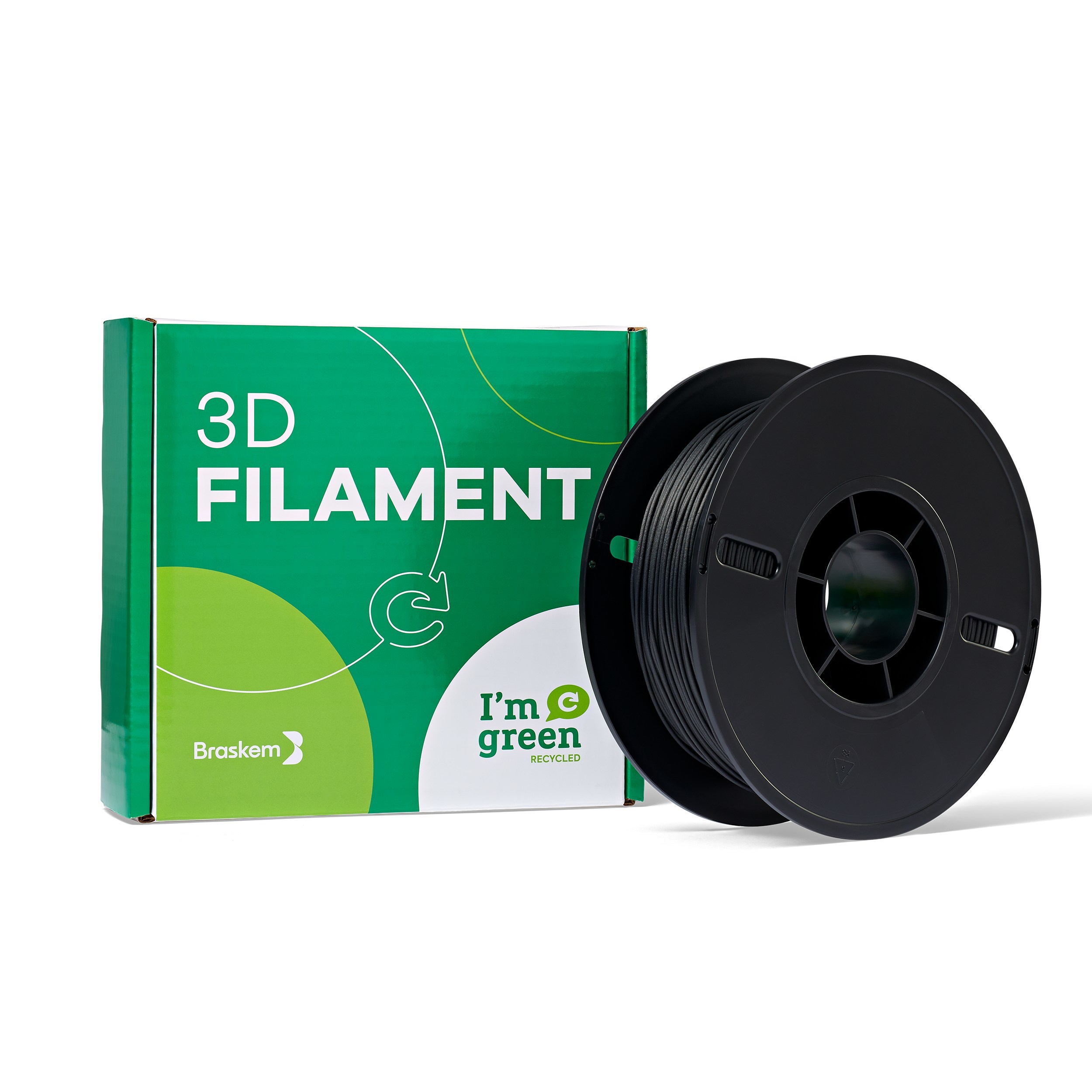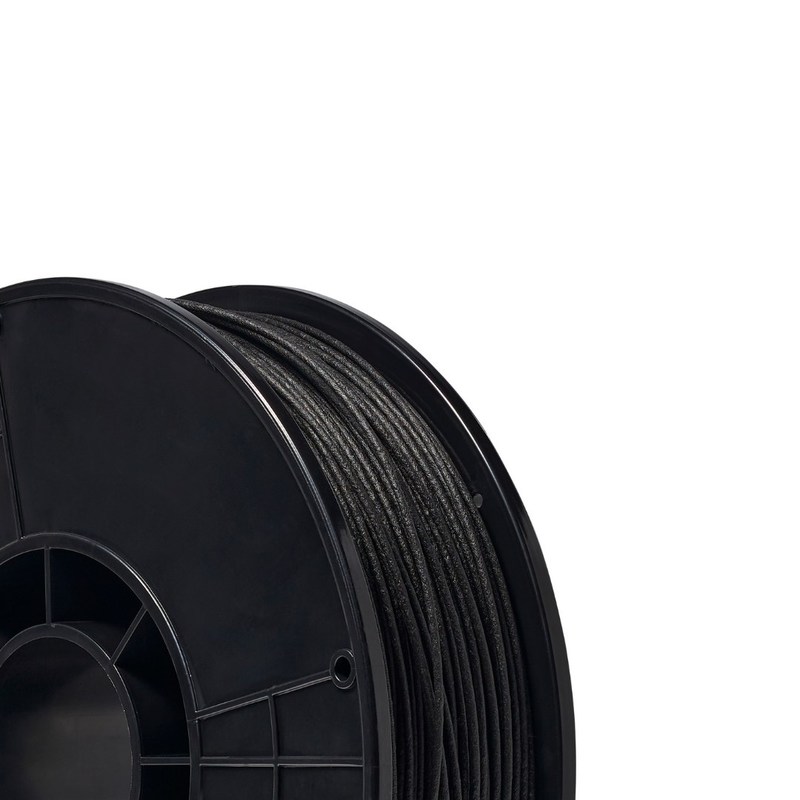Brazilian petrochemical firm Braskem has released its first line of sustainable 3D printing filaments.
Made up of three filaments produced from bio-based ethylene vinyl acetate (EVA), recycled polyethylene (PE) and polypropylene (PP), the new range will be showcased at the upcoming RAPID + TCT trade show in Detroit.
“Braskem has a longstanding history of innovating and producing more sustainable bio-based polymer 3D printing filaments reaffirms our commitment to a more circular, carbon neutral future,” said Jason Vagnozzi, Braskem’s Global Commercial Director of Additive Manufacturing.
“We couldn’t be more excited to present these newest additions to our 3D printing product portfolio at the RAPID + TCT 2022 conference as our clients seek more sustainability solutions for the future.”

Braskem’s growing AM materials portfolio
Since its founding in 2002, Braskem has been developing plastics for new applications, particularly within the aerospace sector. The firm has worked with various well-known names in the field, such as Redwire-owned Made in Space and NASA to develop a plastic recycling facility for the International Space Station.
The company later expanded its Innovation & Technology (I&T) center in Pennsylvania to include a dedicated 2,800 square meter lab for additive manufacturing, and soon after launched its first PP material in partnership with EOS Group subsidiary Advanced Laser Materials.
In May 2020, Braskem launched its own portfolio of 3D printing materials comprised of PP-based filament, powder, and pellets. A couple of months afterward, the firm announced a partnership with 3D printer manufacturer and service provider Titan Robotics to launch a new PP resin specifically engineered for Titan’s Atlas line of dual extrusion printers.
Since then, Braskem has continued to expand its I&T center with a focus on addressing its carbon neutral and innovation goals, and last year entered into a distribution agreement with thermoplastic resin distributor Nexeo Plastics that saw the firm’s PP filament become available through Nexeo’s online marketplace.

Braskem’s sustainable filaments
Braskem has now unveiled three new sustainable filaments for the additive manufacturing market.
The first, FL600EVA-BIO, is a bio-based EVA filament derived from raw sugar cane that is designed to provide a more eco-friendly alternative to traditional flexible materials currently on the market. Marketed as a “low carbon footprint formulation”, the filament is engineered to offer a combination of flexibility, ductility, lightweighting, and moisture resistant properties for direct drive 3D printing systems.
FL600EVA-BIO reportedly offers an excellent surface finish, low warpage, and high dimensional stability to parts. Featuring superb bed adhesion, the filament does not require a heated chamber or need to undergo a drying process. Regarding applications, the filament is suitable for the rapid prototyping and mass customization of flexible and lightweight parts within the packaging, industrial, fashion, and consumer sectors.
The second filament in Braskem’s new sustainable materials line is FL600R, a recycled polyolefin filament designed for use in extrusion-based 3D printing systems. Primarily sourced from recycled bottle caps (around 90 percent) the filament is a PE-PP blend that aims to provide a more sustainable filament option without compromising printability.
According to Braskem, the material provides the same low density and water, chemical, and impact resistance as virgin PE and PP-based materials. Available in black, FL600R is geared toward applications within the automotive, packaging, consumer and industrial markets and is suited to rapid prototyping and mass customization processes. The filament is compatible with 3D printing systems from the likes of Ultimaker, Creality, and other similar machine manufacturers, and has print profiles available on Ultimaker’s Cura Marketplace.
Rounding off Braskem’s new line of sustainable filaments is FL605R-CF, an engineering-grade polymer containing recycled carbon fiber for added strength and durability. Also containing 90 percent recycled content sourced from bottle caps, the filament offers many of the benefits of FL600R but with the added mechanical properties of carbon fiber.
As such, FL605R-CF is suited to aerospace applications, offering high strength, stiffness, and low density to enable lightweight and rigid part design. Like FL600R, the filament is also suited to automotive, packaging, consumer, and industrial applications, and is compatible with Ultimaker and Creality systems.
Braskem will be showcasing its new sustainable filament range at RAPID + TCT taking place 17-19th May, 2022. 3D Printing Industry will be reporting all the news from Detroit, so be sure to say hello and get in touch to share your updates.

Improving material sustainability
With an increased focus on circularity, sustainability, and waste reduction within the manufacturing sector, numerous 3D printing firms are looking to develop ever-more sustainable materials for additive manufacturing.
For instance, Reflow has launched a range of eco-friendly ‘Seaglass’ materials made from locally sourced plastics while Recreus unveiled a TPU filament that is entirely recycled from waste footwear material. Elsewhere, Fillamentum has debuted its 100 percent biodegradable NonOilen filament at various trade shows and researchers from RMIT University have developed their own eco-friendly 3D printable concrete containing recycled glass.
In recent years, various projects have also explored new 3D printable materials made from food waste, such as kombucha tea, pasta and orange peel, as well as more niche waste streams like plant cell walls and termite insect refuse.
Subscribe to the 3D Printing Industry newsletter for the latest news in additive manufacturing. You can also stay connected by following us on Twitter and liking us on Facebook.
Looking for a career in additive manufacturing? Visit 3D Printing Jobs for a selection of roles in the industry.
Subscribe to our YouTube channel for the latest 3D printing video shorts, reviews, and webinar replays.
Featured image shows recycled polyolefin filament with carbon fiber. Image via Braskem.



